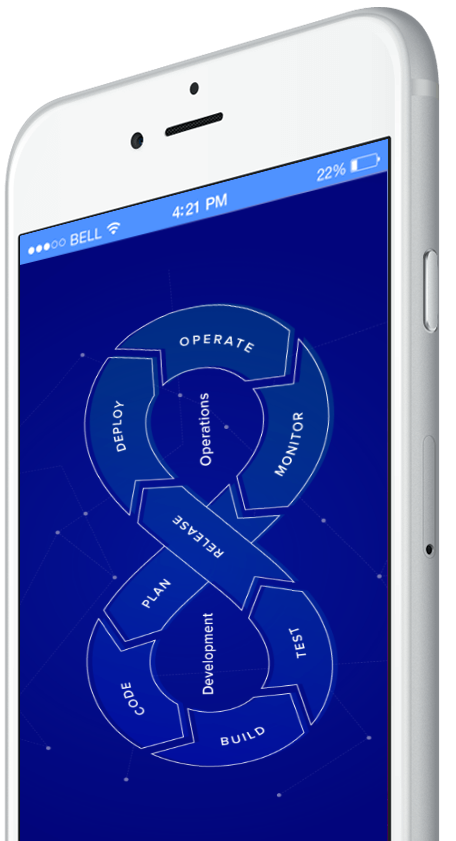What does DevOps actually do? The IT industry is working constantly for developing and maintaining services which are for the betterment of the users and the environment. Using traditional methods and software development needs to be worked out and evolving products at a faster pace should be implemented in organizations.
DevOps is into the picture where the combination of traditional methodologies, practices, software development and tools work together to increase the organization ability to deliver the application with high velocity.
DevOps made up from software Development & information technology Operations i.e. Dev+Ops.
What does DevOps actually do?
Its major role is to shorten the development life cycle and provide recurring software delivery with high quality.

Often Bug occurrence
The software development process has always been tedious because a team has to develop and handle thousands of working pieces together. When a developer works on one part it can affect other working parts on integrating the new code to previous there were no ways to avoid this.
"Top 10 Backend Frameworks for Web Development in 2020"
Nowadays you can hire DevOps engineers to build a complete infrastructure with enormous test cases to reduce the bugs and save development time.
How DevOps works?
As names, there are two teams development and operations which are no longer isolated from each other but work together and merged into a single team where the technocrats work across the entire SDLC i.e. from development to deployment aligned with testing support as well.
"The RoadMap for Java Developers in 2020"
As the USP of the DevOps model is providing high velocity, quality assurance and secured development also integrated with it. The teams throughout stick to each other in every phase of application development and are aware of the smallest changes in the application.
Each team defines their domain and uses practices to speed up the processes which used to be slow and manual. Tools help engineer teams to accomplish tasks independently (for example deploying code or testing nodes), at the place of requiring help from other teams.
What are the benefits of DevOps?
"How to Maintain a Website and Web Server?"
Speed
Moving with velocity benefits to deliver the applications rapidly and engaging customers for the long term. This results in bringing new opportunities and developing more software applications within a shorter span of time. Teams take ownership of products and deliver them at a faster rate. The market adaptability and growing business are also a resultant of DevOps.
Secured
DevOps gives the great opportunity in security compliance. Information security group or team of testers can introduce the security integration earlier during the development and deployment phase, which in result helpful in addressing the issues earlier. The team can accommodate the cultural changes that are introduced and work accordingly.
"Is it worth learning JavaScript in 2020?"
Security measures and cases can be made through automated testing tools and introduced at any point in the life cycle process. There is no necessity of having a team of experts for this but it is a simple process of routine development.
Reliable
DevOps is an Agile Product Delivery part and this ensures the quality of application development and its infrastructure. When quality is maintained there is a positive experience for end-users. Increment in the frequency and quality of deployment make the application development more reliable. With the help of monitoring and logging practices, team and user stay informed with the real-time performance of the application.
"Why you should Learn Python Programming Language in 2020"
Rapid Delivery
From the beginning we are defining the major thumbs up from DevOps is speeding up the velocity of application development. Increase in frequency results in fast delivery of the tasks and bug fixation which in result provide the competitive advantage. End users are responded timely and with on-time application releases, it brings out the confidence and more business to organizations.

